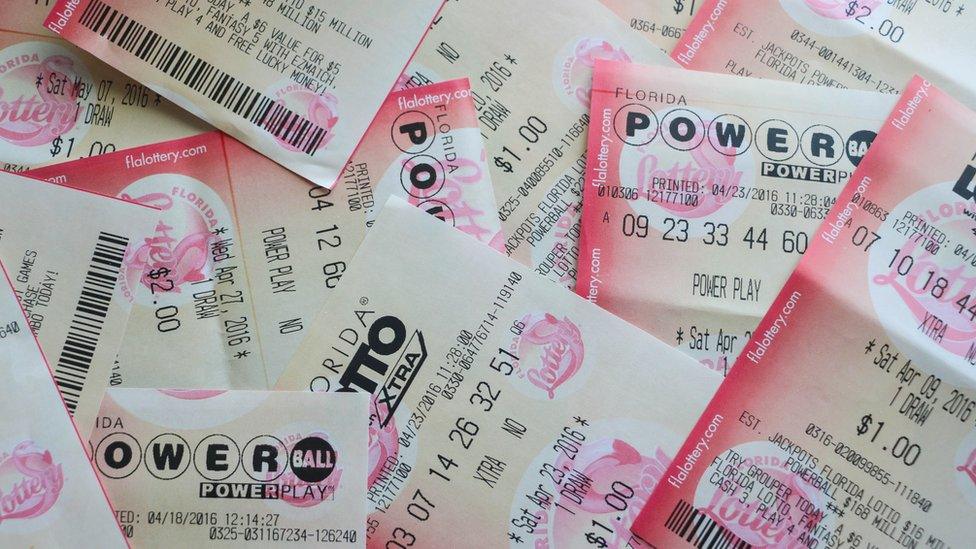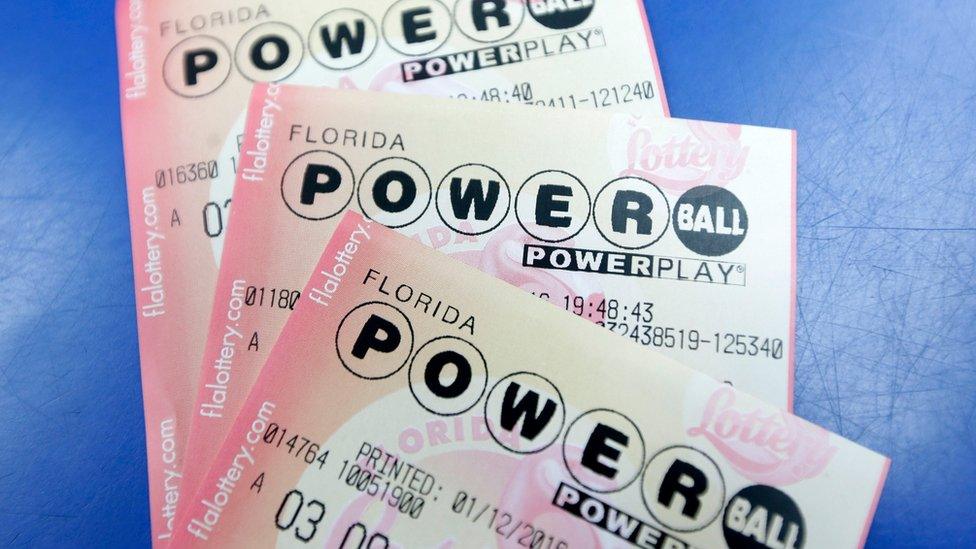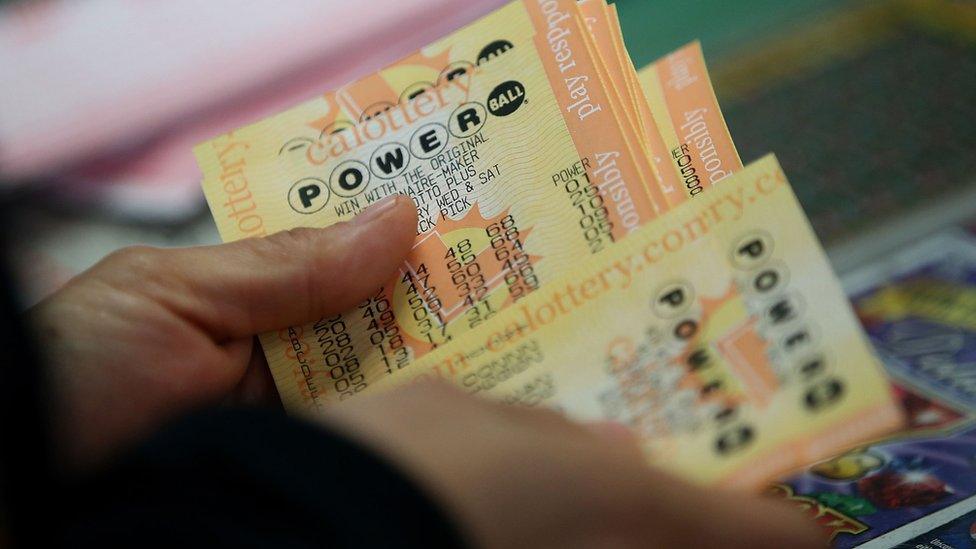Judge rules mystery Powerball winner can keep name private
- Published

"Jane Doe" won almost half a billion dollars in January's powerball lottery
A judge has ruled in favour of a New Hampshire lottery winner who sued the state to keep her identity private.
The mystery winner, who claimed a $560m (£400m) jackpot, argued that her right to privacy outweighed public interest in learning her name.
Revealing her name publicly would amount to an "invasion of privacy" for the 6 January winner, a judge wrote.
But the judge said he will not block the name of her hometown, which will be released to the public.
The winner, known as "Jane Doe" in her lawsuit, is from Merrimack, about 25 miles (40km) south of Concord, her lawyer William Sheehan told US media on Monday.
Revealing her identity would subject her "to an alarming amount of harassment, solicitation and other unwanted communications," Judge Charles Temple of the Hillsborough Superior Court Southern District wrote in his 15-page decision on Monday.
Last week she was allowed to collect her winnings as the legal battle played out in court.
After collecting her winnings, the unknown New Hampshire woman promised to donate $50m to charity, her lawyer told US media.
According to "lottery lawyer" Jason Kurland, only six US states currently allow lottery winners to remain anonymous: Delaware, Kansas, Maryland, North Dakota, South Carolina and Ohio.
New Hampshire is one of the states that requires winners to disclose their names.
"When I first meet [clients] they're all extremely overwhelmed and nervous. Everyone dreams of winning but doesn't actually think they're going to win," Mr Kurland told the BBC.
Individuals go from living relatively normal lives to suddenly never needing to worry about money again, especially winners who take home as much as mystery winner "Jane Doe", he added.
After winning the Powerball in January, "Jane Doe" made a "huge mistake" by following instructions and signing her name on the ticket, as recommended online.
In the lawsuit, Jane Doe claimed she wanted "the freedom to walk into a grocery store or attend public events without being known or targeted, external as the winner of a half-billion dollars", according to court documents obtained by NewHampshire.com
- Published14 January 2016

- Published6 February 2018
